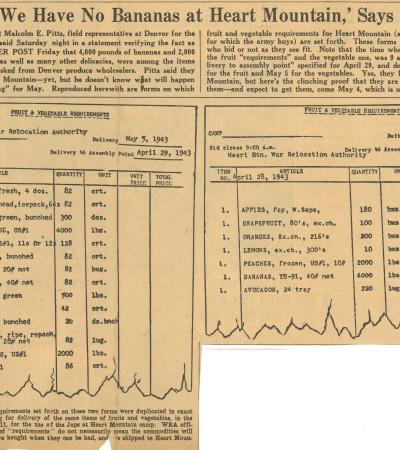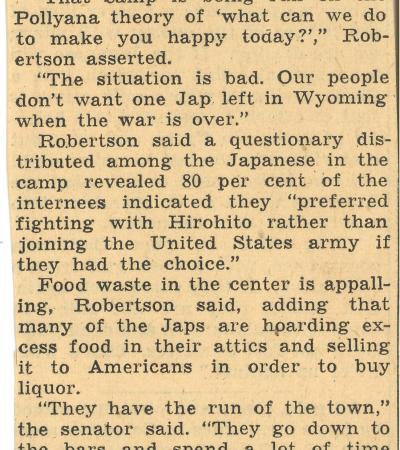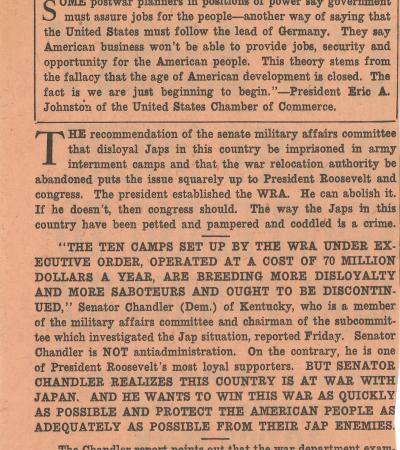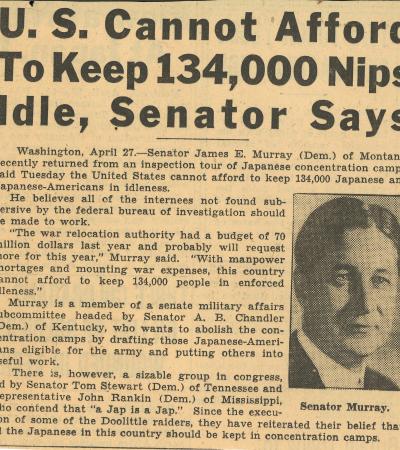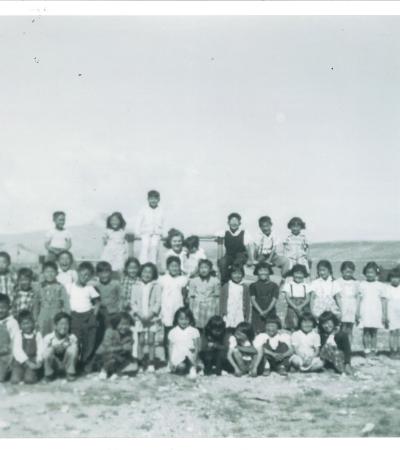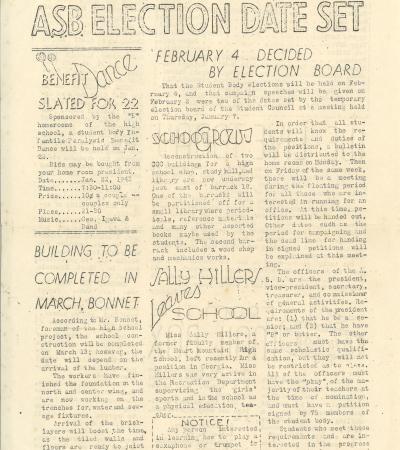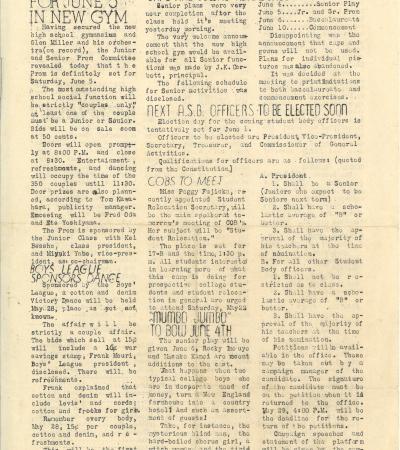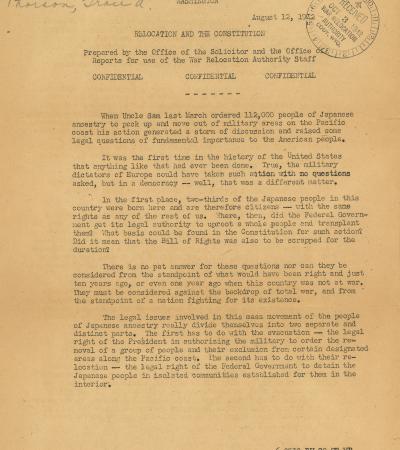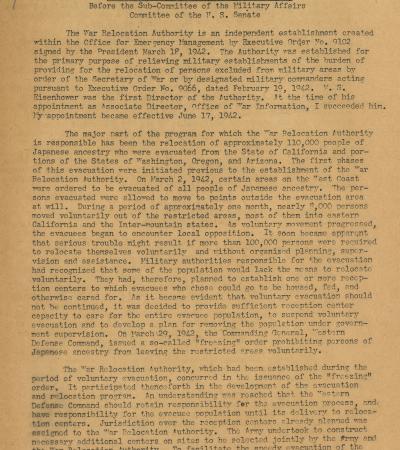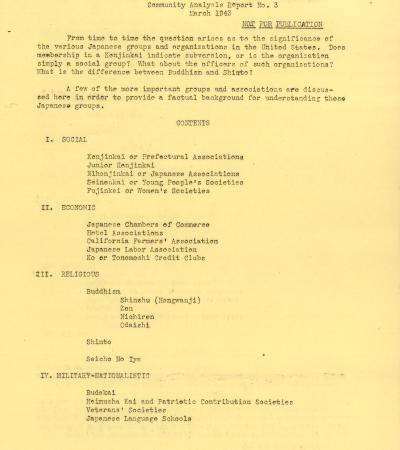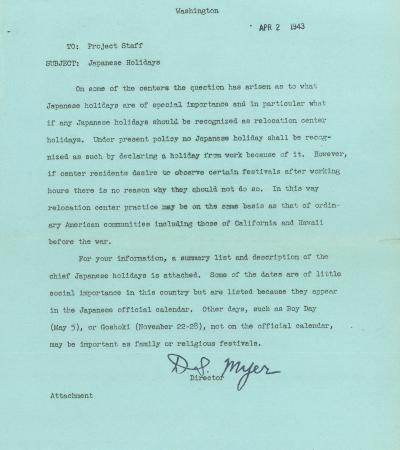Grace Thorson Brown was employed as an elementary teacher at Heart Mountain for the 1942-43 school year. She left Heart Mountain to continue her education at the University of Wyoming. Her papers contain photographs of students and teachers, student newspapers, newspaper clippings, War Relocation Authority documents, employment records, and correspondence.
To review this collection's contents, see the “Inventory for collection.”
"'Yes, We Have No Bananas at Heart Mountain,' Says WRA", Denver Post, 1943
This article details orders from the War Relocation Authority (WRA) for produce to be delivered to Heart Mountain. There was controversy over how much the WRA was spending on fresh fruits and vegetables for the incarcerees.
"West Is Eager To Rid Itself Of NIP 'Guests'"
This article quotes two Wyoming senators. It is representative of the anti-Japanese sentiment expressed by the public and in the press, and includes misinformation about the conditions experienced by the incarcerees at Heart Mountain.
"That's That"
This article argues for the U.S. Army to take over management of the internment camps like Heart Mountain. Some politicians made the argument that the War Relocation Authority was spending too much money and treating the internees too generously.
"U.S. Cannot Afford To Keep 134,000 Nips Idle, Senator Says"
This article quotes a U.S. senator from Montana. He, along with other politicians, suggested that incarcerees in internment camps like Heart Mountain should be either drafted into the army or forced to work. A second group of politicians argued that anyone of Japanese descent was untrustworthy and should be confined.
Students at Heart Mountain Relocation Center, CA. 1943
Teacher Grace Thorson Brown (center, back row) stands with her Heart Mountain elementary school students for a group photo.
Echoes, January 8, 1943
This edition of the Heart Mountain High School student newspaper gives a glimpse into the life of teenagers at Heart Mountain and includes on the last page, a sketch of the new high school buildings that are due to be completed in March of 1943.
Echoes, May 21, 1943
This edition of the Heart Mountain High School student newspaper covers the upcoming prom, graduation and other student activities.
"Relocation And The Constitution", August 12, 1942
This document, published by the War Relocation Authority, addresses the question of the constitutionality of the relocation of people of Japanese ancestry to internment camps. It also outlines how the Federal Government plans to respond if the legality of its evacuation and relocation program is challenged in court.
"Supplementary Statement By Mr. D.S. Myer", January 20, 1943
D.S. Myer, Director of the War Relocation Authority (WRA) as of June 1942, provided this statement before the Sub-Committee of the Military Affairs Committee of the U.S. Senate. It includes detailed information about how the WRA manages internment camps like Heart Mountain and the challenge of balancing the rights and needs of internees with national security concerns.
"Japanese Groups And Associations In The United States.", March 1943
This government report summarizes the significance of various Japanese groups and organizations in the U.S. at the time of World War II.
Memo from the War Relocation Authority to Project Staff, April 2, 1943
This memo was sent to staff at relocation centers like Heart Mountain. It briefly explains significant Japanese holidays. While no Japanese holiday was recognized as a relocation center holiday, incarcerees were permitted to celebrate holidays or festivals after working hours.
